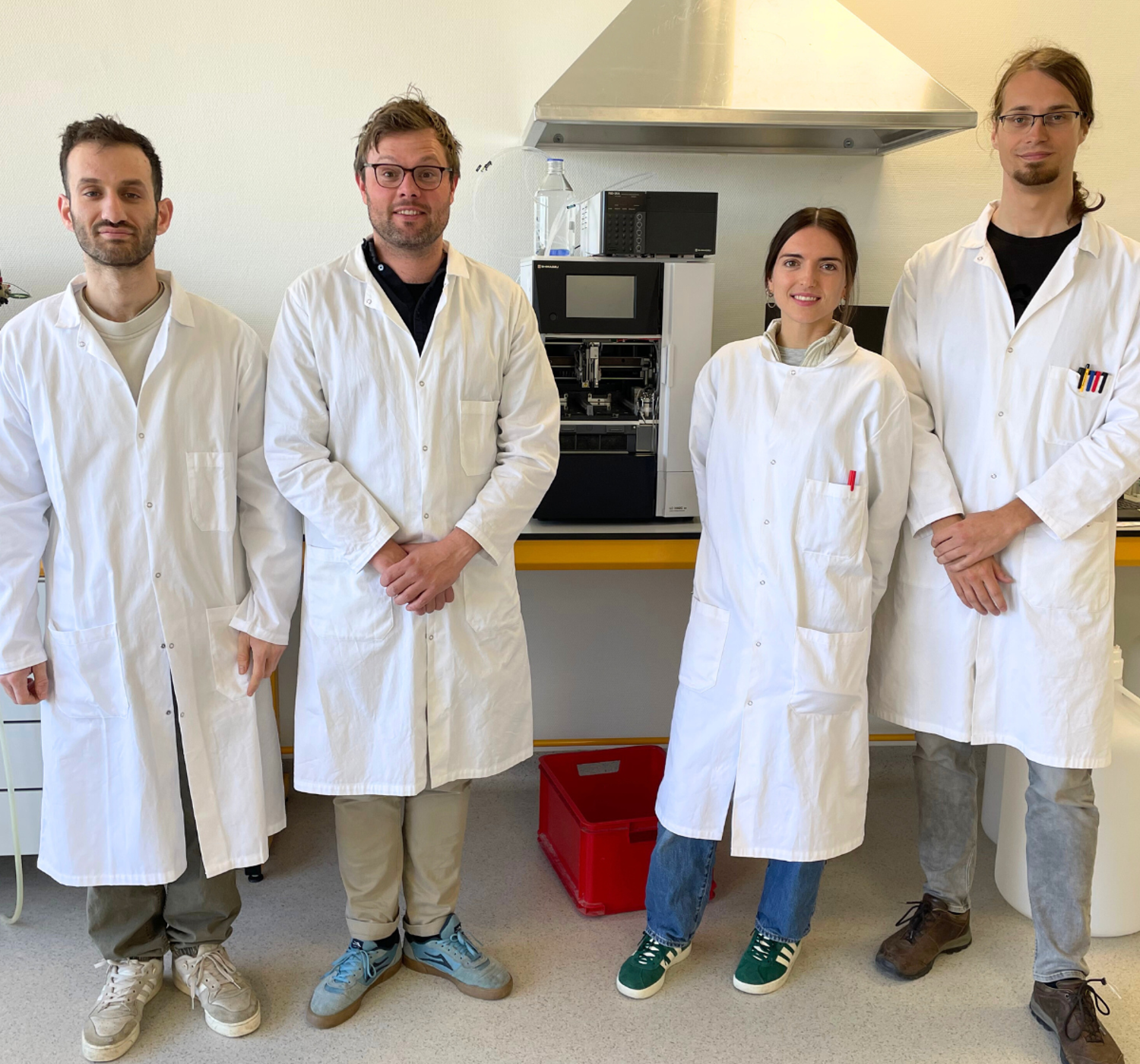24-03-2025
Sharing lab equipment at Planet B.io: A collaboration between ExCulture and Nature’s Principles

One of the many benefits of being part of the Planet B.io community is the opportunity for startups to collaborate and share resources, optimizing costs and accelerating progress. A great example of this is the recent collaboration between ExCulture and Nature’s Principles, which centers around sharing a high-performance liquid chromatography (HPLC) machine.
The need for shared resources
For biotech startups, acquiring specialized equipment like an HPLC machine can be a significant investment, often costing around €50,000. When ExCulture faced challenges with their second-hand HPLC Nature’s Principles stepped in with a timely offer.
"We did have an HPLC machine," said Ilaria Poledri, co-founder of ExCulture. "But when we set it up, it had many problems. That’s when Jules reached out and offered their brand-new machine, just at the right moment when we were facing a bottleneck in our analyses."
Jules Rombouts, co-founder of Nature’s Principles, explained the reasoning behind the offer: "We had moved our lab from Rotterdam and hadn't yet committed to setting up a full facility. So, instead of letting the HPLC sit unused, we looked for a partner who could benefit from it too."
Structuring the collaboration
Setting up the agreement between the two companies went smoothly. They devised a practical schedule: the HPLC machine would be used for ExCulture’s work for two weeks, followed by two weeks for Nature’s Principles’ analyses.
"The setup was quite easy," Ilaria noted. "For the method we wanted to run, we could even share a column, which made things simpler. Of course, swapping columns and buffers takes time, so we built in a buffer period for transitions."
The benefits of resource sharing
Beyond convenience, this collaboration translates to substantial cost savings. Commercial HPLC sample analysis can cost between €2,500 and €6,000 for 20 to 50 samples. "With this planning, we now have a dedicated timeframe every month to analyze fermentation samples without incurring those high costs," Jules explained. "It’s a win-win situation."
Instead of financial transactions, the two companies worked out a practical exchange. "Nature’s Principles is providing the machine, and we are contributing space and manpower," Ilaria shared. "Our process engineer will also run Nature’s Principles’ samples."
"If you need something, just ask. People here are very willing to help."
A model for future collaborations
This partnership is not an isolated case. ExCulture has already engaged in another informal collaboration with FoamLab, utilizing their freeze dryer for biomass processing. Moving forward, they are considering similar partnerships for bioreactors, another expensive and high-demand piece of equipment. "Even if you decide to buy new equipment, lead times can be long - three months for a bioreactor, for example,” Ilaria mentioned. “Startups don’t always have that time to wait."
Planet B.io is actively facilitating collaborations between the Planet B.io members. A comprehensive list of available equipment among the community is available, making it easier for startups to find shared solutions rather than investing in costly new machines.
"If you need something, just ask," Ilaria advised other startups. "People here are very willing to help. If Jules hadn’t reached out to us, we would probably still be struggling with our old machine. Collaboration is key."
With more companies embracing this collaborative mindset, the ecosystem at Planet B.io continues to strengthen, fostering innovation through shared resources and collective problem-solving.
